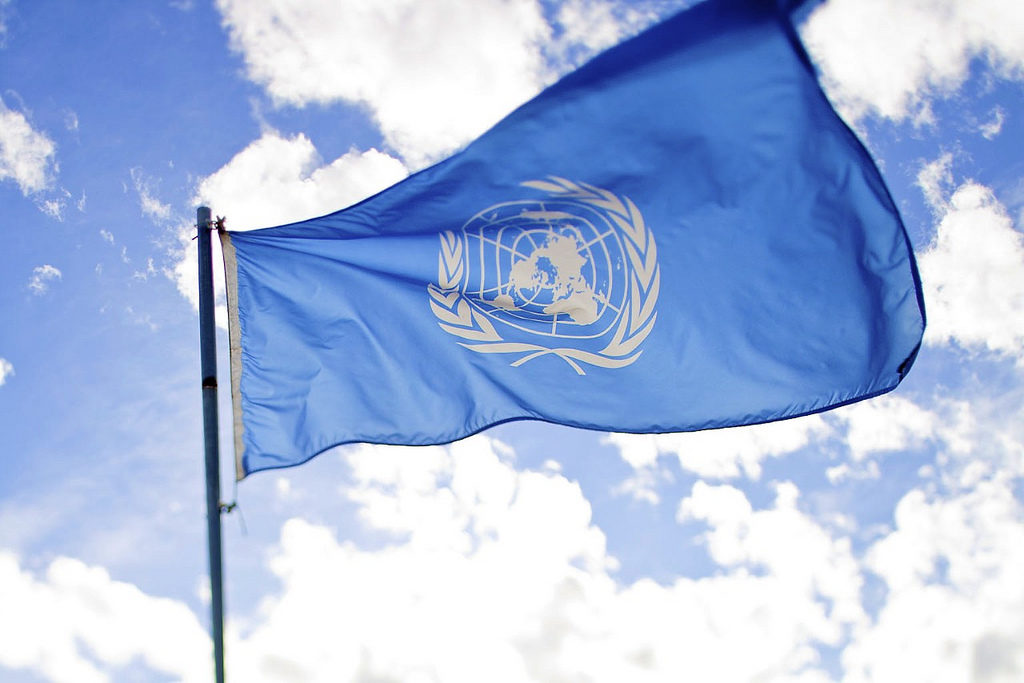Journalists have generally done a thorough job of covering the most recent report released by the Intergovernmental Panel on Climate Change (IPCC) at the beginning of October, according to a few of the contributing authors. However, most journalists still missed a few major findings.
“I think most of the media got the main message right—that we’re in some trouble and we need to work fast to fix it,” says Harry Saunders, a contributing author to the report who focuses on energy efficiency.
Among the many findings, the main issue was global warming must be limited to 1.5 degrees Celsius, or we will be forced to live with irreversible damage to the Earth’s climate. Some of the effects—rising oceans, deadly heat waves, natural disasters that are happening more frequently and with more intensity—are already visible. Those changes will only become worse if people and policymakers do not act urgently. These were the main points journalists stressed, but there are several issues addressed in the report that were largely glossed over in the news.
“What was not picked up very effectively is the fact we’re going to need a whole lot more energy in the future, because there are large swaths of the world that are in poverty,” says Saunders. “We can’t stop growing energy use and hope to raise the poor in the world out of poverty.”
Saunders also contributed to a 2013 report by the Asian Development Bank, which found that about 1.2 billion people had no access to electricity. Another 2.5 billion people relied on “traditional” fuels such as wood, charcoal, and manure, which contribute to indoor pollution and adverse health effects. A key part of the solution to these issues is increasing nuclear power, another component of the report that Saunders says was missed in coverage.
Daniel Scott, another contributing author and a professor at the University of Waterloo says that if he could give only one message from the report, it is that the most effective way to decrease emissions is by implementing a carbon tax.
“That is what Nobel Prize economists are saying—that the simplest, cleanest, most economically efficient thing to do is to price carbon,” Scott says. In the meantime, the Ontario provincial government has done the exact opposite by killing cap-and-trade.
“Your generation has to get angry and mobilize its vote,” is what Scott says to his students at the University of Waterloo, where he is director of the six-year-old Master of Climate Change program. “That is the only thing that is going to reverse these regressive—not progressive—conservative policies specific to climate change.”
“There are always arguments that the media should be taking climate change more seriously and I agree with those in general. There should be a climate beat and there should be climate specialized reporters,” says Malcolm Araos, who is currently working toward a sociology PhD at New York University and specializes in urban adaptation to climate change. Despite some minor criticisms, Araos says he is satisfied with the amount of press coverage given to the report.
“I don’t think it was underreported, and I really commend journalists because the IPCC reports are [full of jargon]. They’re really hard to digest,” he says. “Journalists are super important and do an excellent job of translating the main findings of those reports into something that the public understands and cares about.”
Among those journalists covering climate change is Ivan Semeniuk, a beat reporter who has been covering science for more than 20 years and has been the Globe and Mail science reporter for almost six. Semeniuk did not cover the IPCC report for the Globe—his colleague, global energy reporter Shawn McCarthy, took care of that. Nonetheless, he has been paying close attention and is surprised by the amount of attention it has received.
“You never quite know how it’s going to go because there are times when important reports are issued, or important developments take place and it seems at times that the world barely notices,” Semeniuk says. “Something about this report really caught people’s attention, and I think part of it was the clarity of the message this time.”
Unfortunately, people who have already decided what to think about climate change are unlikely to change their minds due to any number of science-based findings presented to them.
“If you are a science journalist and you think your skill set is explaining complicated ideas, there’s a tendency to say, ‘if I just explain this well enough, people will get it,’” Semeniuk says. However, people who already don’t believe in climate change are likely to only see such reporting as propaganda.
“They recognize that they would pay a cost in their social or political circle for taking your message on board, so they just switch you off. It’s hard to know, in that situation, if any amount of reporting would make a difference.”
Speaking independently of the Globe, Semeniuk says that he believes some of the responsibility falls to the public to think critically about the news they consume and learn to differentiate between news and opinion pieces.
“We’re now flooded with opinion in which people can make claims about how climate science is uncertain, or incorrect, and that goes unchallenged because they’re writing opinion pieces and people see that as part of the news.”
